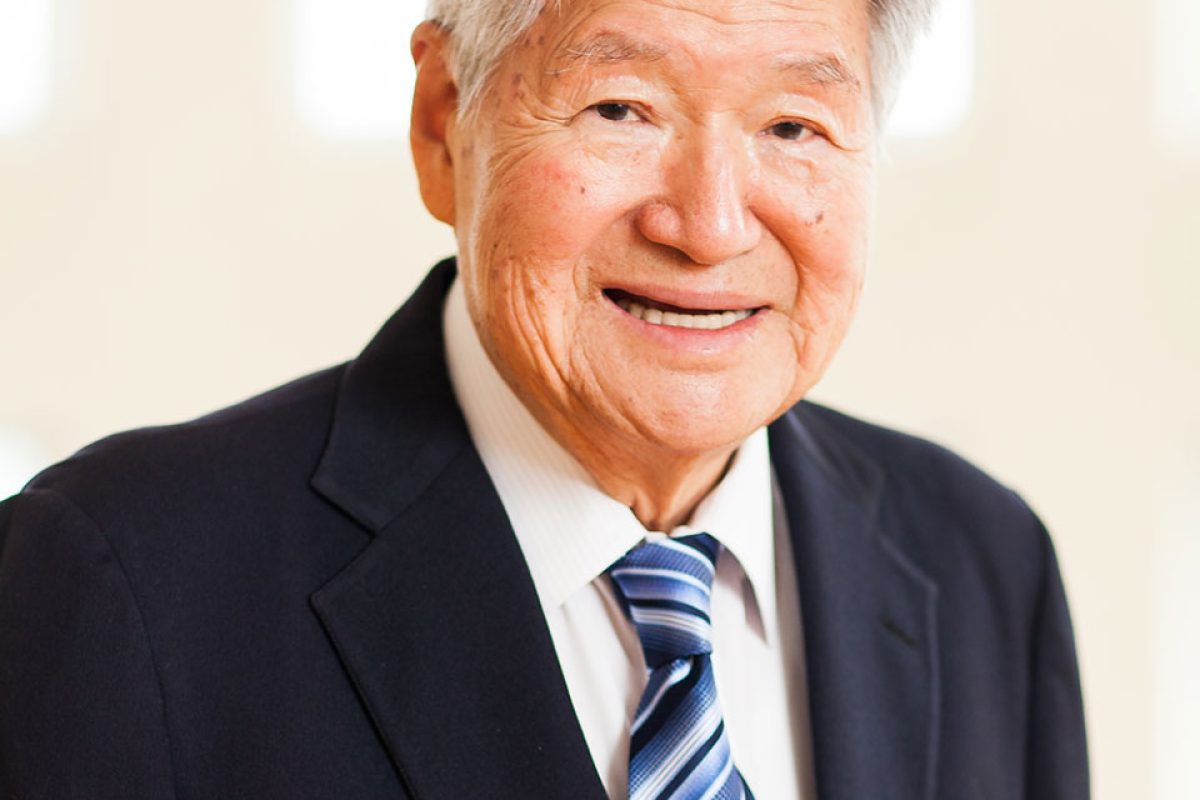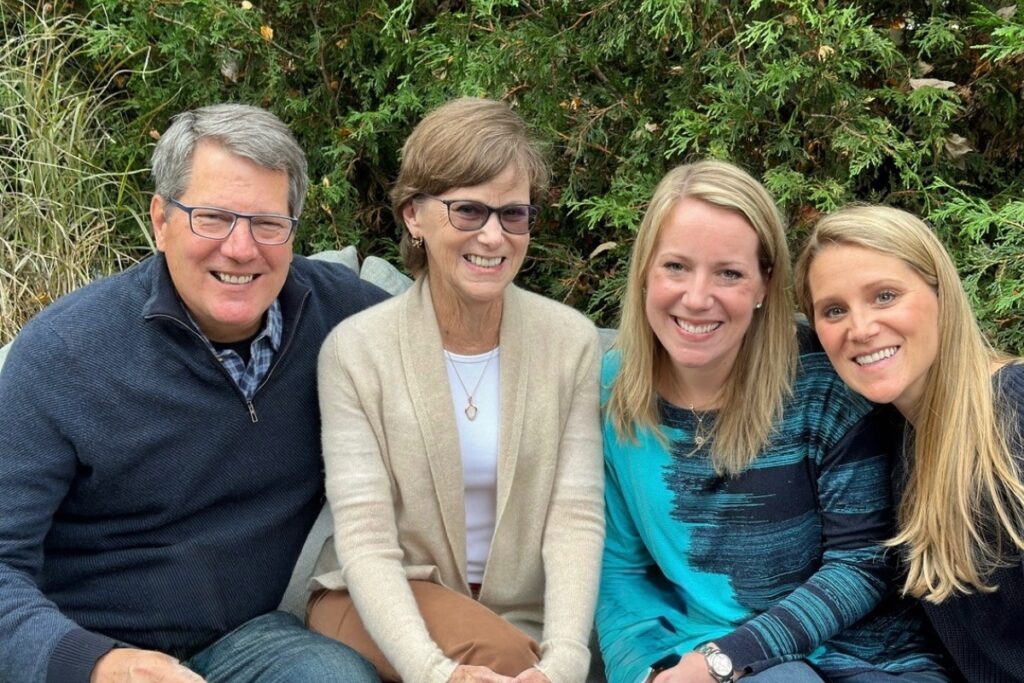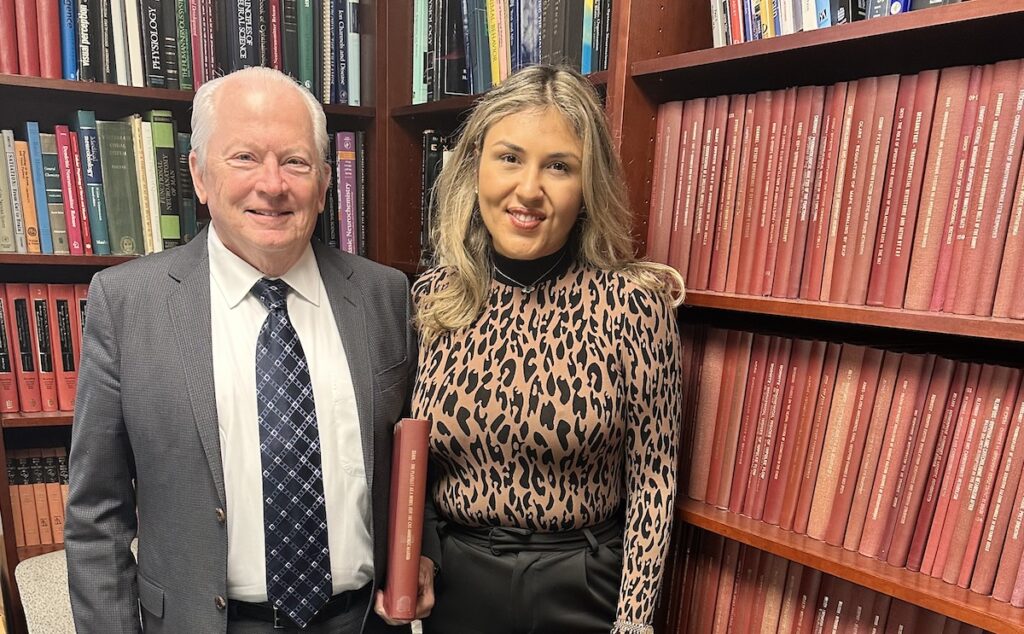Cyrus Tang, former CEO and chairman of Tang Industries, left an important and lasting legacy at the University of Chicago. Tang, who passed away in June 2018, established the Tang Center for Herbal Medicine Research at the University in 2000 through generous donations from his foundations.
Born in a village near Shanghai, China in 1930, Tang came to the United States in 1950. After spending two years at Widener University (formerly known as Pennsylvania Military College) in Chester, Pennsylvania, Tang moved to Chicago, where he met his wife and started a family. During his first years in Chicago, Tang held a number of jobs—from running a dry-cleaning business to delivering newspapers to working in a shipyard to opening a restaurant. In 1964, he founded his first company, National Material, based in Chicago. He subsequently founded Tang Industries, an international manufacturing and distribution company based in Las Vegas, in 1970.
By establishing the Tang Center, Tang helped bring together a team of researchers to investigate the benefits and potential dangers of herbal therapies using advanced scientific approaches. In addition, he established the Cyrus Tang Professorship, an endowed professorship that recognizes an accomplished leader in the field of herbal medicine research.
“The professorship changed my work, my career, and my life,” said Chun-Su Yuan, MD, PhD, the current holder of the Cyrus Tang Professorship and director of the Tang Center. “It not only helped validate my work, but also brought attention to the field of herbal medicine research at-large. This has allowed my team and me to develop many important collaborations.”
Today, the Center’s collaborations include the Tang Center for Herbal Medicine Research in Beijing, China; the Digestive Diseases Research Core Center and the Microbiome Center at the University of Chicago; Argonne National Laboratory; and a number of herbal medicine research groups across China.
Thanks to Tang’s generosity, researchers at the Tang Center are investigating the anti-cancer and anti-diabetes effects of herbal medicines, particularly American ginseng. Recently, Yuan and his team studied ginseng’s impact on the microbiome—the trillions of bacteria that live in each person’s gut. They found that, among mice with colorectal cancer, ginseng restored the community of gut bacteria to a healthy state, while also significantly reducing inflammation. This research suggests that ginseng may be useful for the prevention of colorectal cancer, one of the most common cancers.
Looking ahead, Yuan hopes to conduct more studies investigating ginseng’s effects, eventually including clinical trials.
“The general public is very enthusiastic about dietary supplements and herbal medicine,” Yuan said. “With continued research, we hope to provide unbiased scientific findings that can help inform the medical community, patients, and health-conscious consumers.”
Beyond advancing research, the Tang Center is committed to educating future health care professionals in the field and disseminating knowledge. To that end, the center publishes the American Journal of Chinese Medicine, the oldest complementary and integrative medicine journal in the United States, and offers a comprehensive course in herbal medicine in collaboration with the Academy of Pain Research in San Francisco, California.
Yuan noted, “Mr. Tang once told me: ‘When you are determined to do something, you should do it well.'”
He and his colleagues strive to heed this advice and fulfill Tang’s high expectations by advancing understanding of herbal medicine through innovative scientific research and educational programs.
“The generous investment made by Cyrus Tang and his foundations has enabled us to establish an important center to study the scientific basis of traditional Chinese herbal remedies,” said Kenneth Polonsky, MD, dean of the Division of the Biological Sciences and Pritzker School of Medicine. “Thanks to his support, we are advancing understanding of the impact of these traditional herbal medicines on various disease processes, opening up strategies to develop novel approaches to prevention and treatment.”
In addition to his generous support for the Tang Center, Tang’s impact in China has been transformative, including: providing 100,000 scholarships to high school, university, and graduate students; building 250 primary schools in impoverished areas; and funding a university library, community hospital, nanotechnology center, and more.
“Dad wasn’t one to trumpet his success,” said Michael Tang, Cyrus’s son. “Long before philanthropists like Bill Gates and Warren Buffet committed to giving away half of their wealth to charity, Dad was already quietly doing so.”
In a rare interview about his philanthropy, Cyrus said, “I believe success in life is not based on assets gained or knowledge acquired. It is how we make use of what we have to contribute to society.”
Through his many contributions, Cyrus Tang was undoubtedly a model of great success.
“His actions and deeds have influenced hundreds of thousands of people,” Michael said. “I am proud, grateful, and humbled to have him as my father.”




